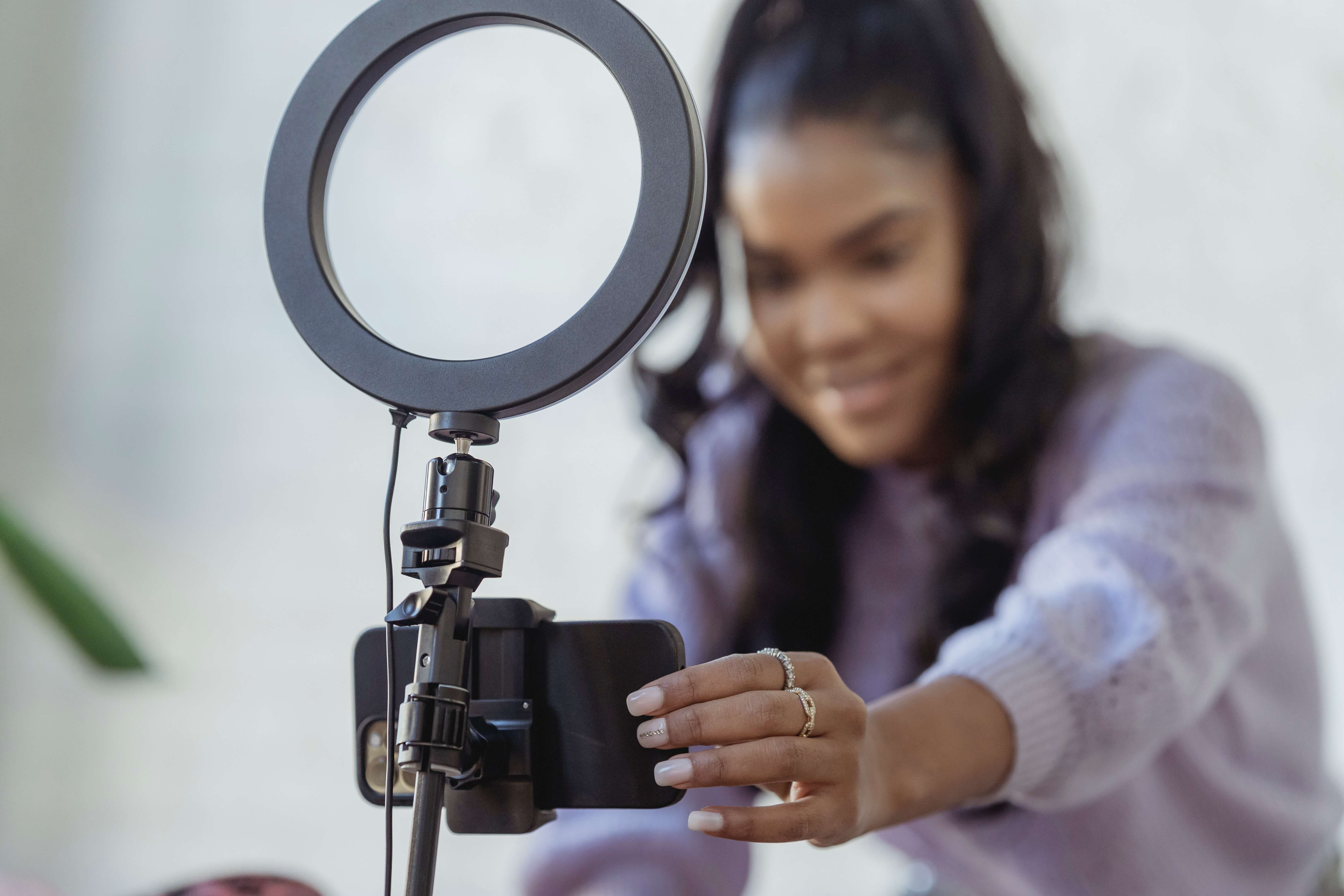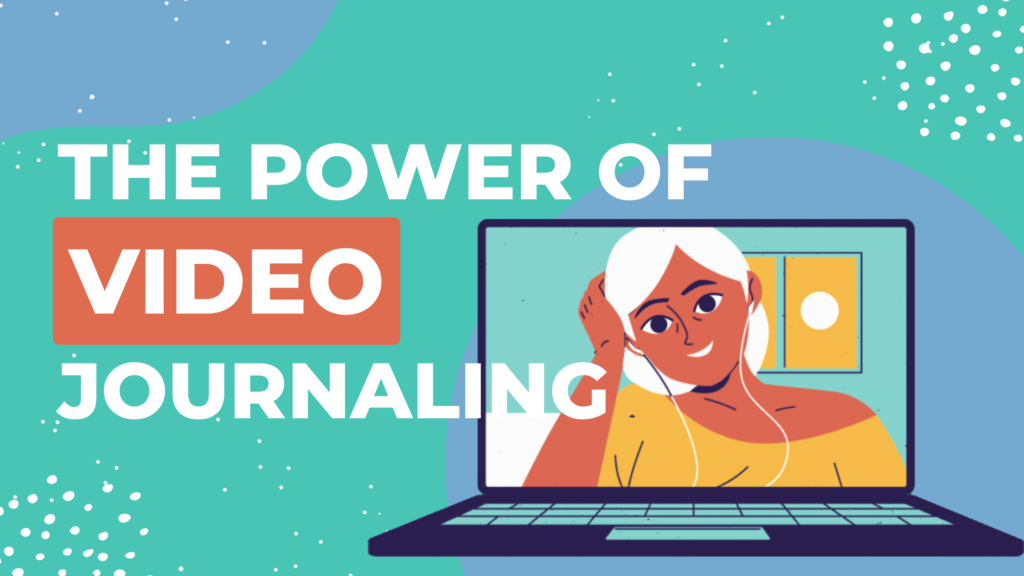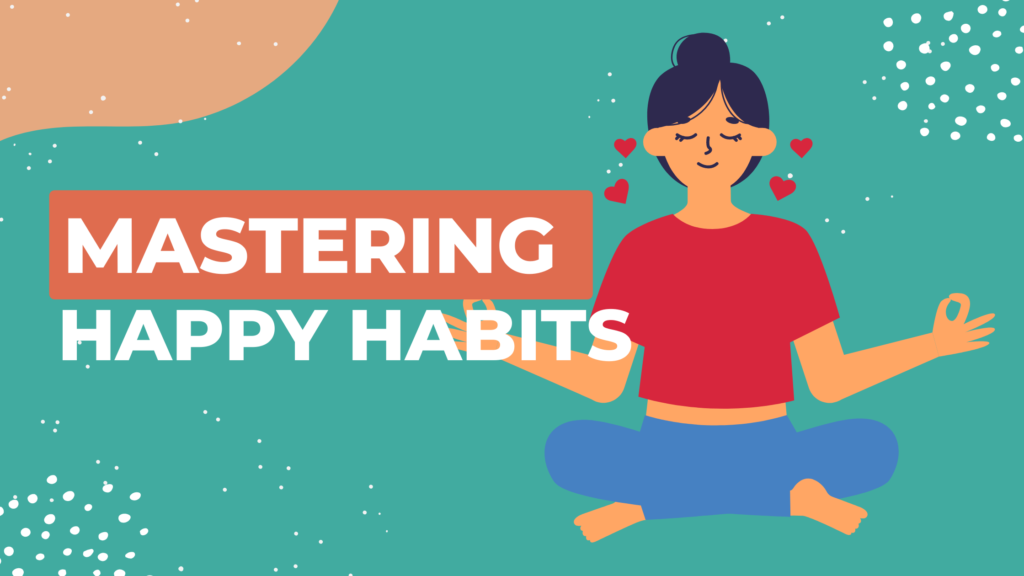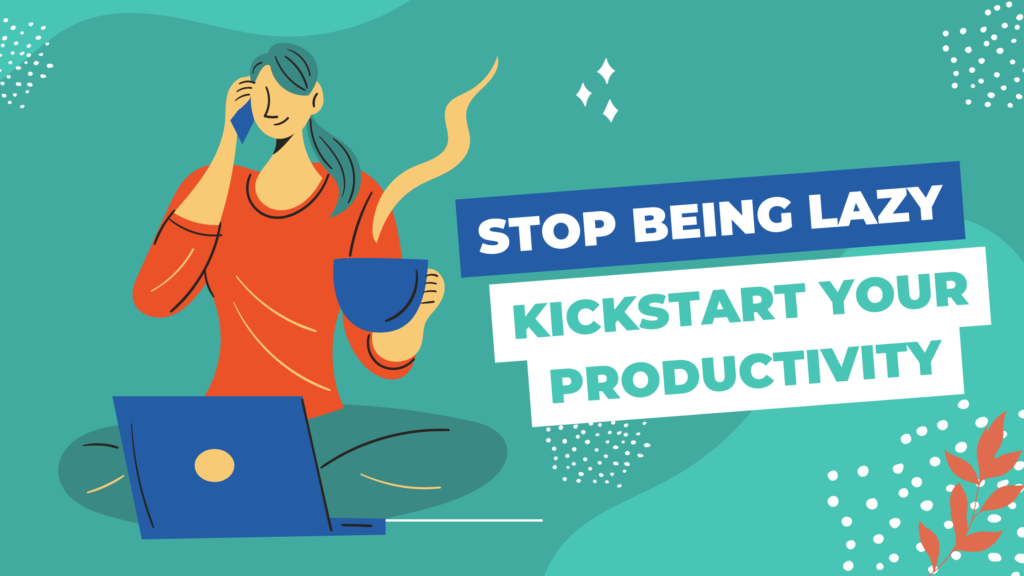Have you ever considered journaling as a tool for personal growth and self-reflection? If so, have you tried video journaling? Video journaling is a method of journaling where you record yourself speaking about your thoughts, feelings, and experiences. It is a form of expressive therapy that has been shown to have numerous benefits for mental health and personal development. In this article, we’ll explore the benefits of video journaling, and provide you with tips and guidance on how to get started.
What video journaling is and its benefits
Video journaling is similar to traditional journaling in that it involves recording your thoughts and feelings about your experiences. However, instead of writing down your thoughts, you speak them out loud while being recorded on video. This method of journaling has been gaining popularity in recent years, with many people finding it to be a powerful tool for self-reflection and personal growth.
The benefits of video journaling are numerous. Firstly, it allows you to express your thoughts and feelings in a more natural and authentic way than traditional journaling.
Secondly, it can be easier to remember your experiences when you have recorded them on video, allowing you to reflect on them more deeply.
Thirdly, watching yourself back on video can provide valuable insights into your behavior and thought patterns, which can help you to identify areas for personal growth.
Numerous studies have shown the effectiveness of journaling for personal growth and mental health. For example, a study conducted by the University of Texas found that expressive writing (including journaling) can lead to improved immune system function, reduced blood pressure, and improved emotional well-being.
Another study published in the Journal of Psychosomatic Research found that expressive writing can lead to improved immune system function, reduced blood pressure, and improved emotional well-being.
Understanding Video Journaling
Definition of Video Journaling and Its Differences from Traditional Journaling
Video journaling is the process of recording personal thoughts and experiences through videos, just like how traditional journaling is done through writing. However, video journaling provides a more immersive experience by adding a visual and auditory element to the reflection process.
The Power of Visual Storytelling and How it Can Benefit Personal Growth
Visual storytelling is a powerful tool for personal growth. According to research, the human brain processes visual information 60,000 times faster than text. By incorporating videos into our reflection process, we can better express our emotions, capture our experiences, and gain insights that we may not have been able to identify through traditional journaling.
Different Types of Video Journaling Techniques and How to Choose the Right One for You
There are various types of video journaling techniques, and choosing the right one depends on your preferences and goals. Some popular techniques include:
- Talking head videos: These involve recording yourself speaking directly to the camera, sharing your thoughts and experiences.
- Vlogs: Similar to talking head videos, but with a more informal and conversational approach.
- Day in the life videos: Record snippets of your daily routine to capture the moments that you want to remember.
- Travel videos: Document your trips and adventures to revisit the memories in the future.
Choosing the right technique is important to ensure that video journaling becomes a sustainable habit that fits your lifestyle and personality.
The Benefits of Video Journaling
Video journaling has numerous benefits that can positively impact your personal growth, mental health, and overall well-being. Here are some of the key benefits of video journaling:
Increased Self-Awareness and Emotional Regulation
One of the most significant benefits of video journaling is increased self-awareness. Recording yourself allows you to see and hear yourself in a way that is not possible with traditional journaling. This can help you gain new insights into your thoughts, emotions, and behaviors, which can improve your self-awareness and emotional regulation skills. You can also review your recordings and identify patterns and triggers that may be impacting your emotions and behaviors.
Improved Problem-Solving and Decision-Making Skills
Video journaling can also improve your problem-solving and decision-making skills. By recording your thoughts and ideas, you can organize your thinking and analyze problems more effectively. You can also review your recordings to see how you approached similar problems in the past and learn from your successes and failures.
Enhanced Creativity and Self-Expression
Another benefit of video journaling is enhanced creativity and self-expression. Video journaling allows you to visually and verbally express yourself in a way that is not possible with traditional journaling. You can experiment with different camera angles, lighting, and sound effects to create a unique and creative video journal that reflects your personality and style.
Positive Impact on Mental Health and Well-being
Finally, video journaling has a positive impact on mental health and well-being. It can help reduce stress and anxiety by allowing you to express your emotions and thoughts in a safe and private space. It can also improve your mood and increase feelings of happiness and satisfaction.
According to a study published in the Journal of Medical Internet Research, individuals who engaged in video journaling reported improvements in their mental health and well-being. The study found that video journaling helped participants reduce stress, increase self-awareness, and improve their overall quality of life.
How to Get Started with Video Journaling
Video journaling is an excellent way to reflect on one’s life and improve personal growth. However, starting the process can be daunting. To help you get started with video journaling, we have put together a list of steps that will guide you through the process.
Choosing the Right Equipment and Software
Choosing the right equipment and software is critical to the success of your video journaling. Here are some tips to help you make the right choices:
- Choose a camera that is easy to use, and that you feel comfortable using.
- Select video journaling software that is user-friendly and has the features you need.
- Ensure that the software you choose is compatible with your camera.
Setting Goals and Creating a Plan
Before starting video journaling, it’s essential to set some goals and create a plan. Here’s how to go about it:
- Identify the reasons why you want to start video journaling.
- Determine how often you want to record videos.
- Decide on the length of your videos.
- Set a specific time of day when you want to record your videos.
Establishing a Regular Video Journaling Routine
Consistency is key when it comes to video journaling. To establish a regular video journaling routine, follow these tips:
- Set reminders on your phone or calendar to remind you to record your videos.
- Choose a quiet place where you can record your videos without interruptions.
- Try to record your videos at the same time each day.
Tips for Staying Consistent and Motivated
Staying consistent and motivated can be a challenge, but there are ways to overcome this. Here are some tips:
- Review your videos regularly to remind yourself of your progress and growth.
- Share your videos with a trusted friend or family member for accountability.
- Set rewards for yourself for achieving video journaling milestones.

Video Journaling Apps: A Convenient Way to Document Your Life
In today’s fast-paced world, it is essential to keep track of the moments that matter to us. Video journaling has become one of the most popular methods of recording our lives. With video journaling apps, it’s now easier than ever to document your life and relive your memories.
Day One Journal (Android, iOS)
The Day One Journal app is a comprehensive journaling app that allows you to record your life’s events using pictures, voice recordings, videos, and text. The app’s diary organization is one of the best available, giving it a friendly, personal look that makes it feel like your private digital space. With the app’s “On This Day” feature, you can look back on things you wrote on a chosen calendar date in previous years. The free version of the app allows you to add as many entries as you like, while the premium version offers unlimited cloud storage, syncing between different Day One apps, and customer support.
1 Second Everyday (Android, iOS)
The 1 Second Everyday app lets you take a one-second video clip every day and stitch it together into a breezy slideshow, essentially documenting your life. The app has its own built-in editing suite, so you can spruce up your clips however you wish. The app is perfect for those who don’t want to spend a lot of time documenting their lives but still want to have something to look back on. The app can use your existing videos to fill in past dates on your 1SE calendar, making it easy to get started.
Journey (Android, iOS, Web, Mac)
The Journey app is a Google’s Choice app, probably because of the number of features it offers. Entries sync with Google Drive, making it easy to access them anywhere. The app also offers the option to upload multiple images, videos, and panoramas; tag entries to locate them later; and download them as PDFs or Word docs to print them. The app works on any mobile device (Android, iOS), on the Web at Journey Cloud, as a Chrome extension, or on a desktop application that does not require the Internet.
Daylee: Your Video Diary (Android, iOS)
Daylee is an app that lets you record short video clips up to 10 seconds long each day. You can also add photos, drawings, and text to the entry. The app offers various features such as mood, emoji, caption, location, etc., to enhance your video entries. Initially, the clips are saved locally, then are synced to Google Drive or Apple iCloud storage, depending on the backup option selected. The premium version of the app offers more features such as the ability to upload clips of any length, all moods and emojis, all app colors, no ads, and unlimited cloud storage.
Daily Moments (Android)
Daily Moments is a simple yet intuitive app that lets you start recording right away without signing up first. The app offers an easy-to-use interface, where on the first screen, you get the calendar and two buttons – Open and Record – to add your videos. The app supports both landscape and portrait videos. However, the app doesn’t offer any backup feature.
My Life Journal (iOS)
My Life Journal is an app that lets you create videos of up to five minutes, post pictures, and add audio notes. You can also add goals and keep track of them. The app will automatically create life movies every year. The premium version lets you private message people, share life movies, add unlimited entries, has no ads, and offers unlimited cloud storage.
Tips for Effective Video Journaling
Video journaling can be an excellent way to reflect on your thoughts, feelings, and experiences. However, to get the most out of it, there are some tips that you should follow:
Creating a safe and private space
Before you start recording your video journal, ensure that you have created a safe and private space where you can express yourself freely without worrying about being overheard or judged. This can be a quiet room, your car, or any other place where you feel comfortable.
Focusing on the present moment
When recording your video journal, focus on the present moment and try to avoid distractions. Turn off your phone and other devices, and take a few deep breaths before starting to record.
Being authentic and honest
To get the most out of your video journal, it’s essential to be authentic and honest. Speak from the heart and share your thoughts and feelings openly. Don’t be afraid to express your emotions, as this can help you gain a deeper understanding of yourself.
Using prompts and reflection questions
Using prompts and reflection questions can help you stay focused and ensure that you’re getting the most out of your video journal.
10 prompts that you can use for video journaling reflection:
- What are the three best words that sum up the theme of this year?
- What was your greatest accomplishment? What worked out for you this year?
- What do you wish you had done differently?
- What do you wish you had done this year?
- If you could rewind the year, what advice would you give yourself knowing what you know now?
- How did you positively contribute to the lives of others?
- What stands out as being the most memorable moment of the year?
- What and who are you grateful for?
- How are you different from when you started the year?
- How do you want to improve next year?
Using these prompts and questions can help guide your reflection and ensure that you’re getting the most out of your video journal.
Most importantly, video journaling can be a powerful tool for personal growth and development. It allows you to reflect on your experiences and gain a deeper understanding of yourself. By following these tips and using reflection prompts, you can make the most out of your video journaling practice.
Besides that, video journaling can also be a fun and creative way to document your life. You can capture important moments, memories, and milestones, and look back on them in the future.
For example, suppose you’re trying to improve your time management skills. In that case, you can use your video journal to reflect on how you’re spending your time and identify areas where you can make improvements.
Video journaling can be a powerful tool for personal growth and development. By following these tips and using reflection prompts, you can create a safe and private space, stay focused on the present moment, be authentic and honest, and reflect on your experiences in a meaningful way.
Overcoming Challenges and Obstacles
Video journaling can be a powerful tool for personal growth and development, but like any habit, it can be difficult to maintain. In this section, we’ll explore some common challenges and obstacles that people face when trying to establish a video journaling practice and offer some strategies for overcoming them.
Dealing with self-doubt and perfectionism
One of the most common challenges people face when starting a video journaling practice is dealing with self-doubt and perfectionism. It can be difficult to put yourself out there on camera, especially if you’re used to being critical of your own appearance or performance.
To overcome this challenge, it’s important to remember that video journaling is a personal practice, and there’s no one “right” way to do it. The most important thing is to be authentic and honest with yourself. Here are some additional strategies to help you overcome self-doubt and perfectionism:
- Set realistic expectations: Remember that video journaling is a skill, and like any skill, it takes time to develop. Don’t expect to be a pro right out of the gate. Instead, focus on making progress and improving over time.
- Embrace imperfection: Perfectionism can be a major roadblock to progress. Instead of striving for perfection, embrace imperfection and use it as an opportunity for growth and learning.
- Focus on the process, not the outcome: Rather than worrying about how your videos will be received by others, focus on the process of creating them. By focusing on the process, you’ll be more likely to enjoy the journey and stay committed to your practice.
Finding time to video journal
Another common challenge when starting a video journaling practice is finding time to do it. With busy schedules and competing priorities, it can be difficult to make video journaling a consistent habit.
To overcome this challenge, it’s important to make video journaling a priority and to schedule time for it. Here are some additional strategies to help you find time to video journal:
- Start small: Rather than trying to commit to a lengthy video journaling session every day, start with a small commitment, such as 5-10 minutes per day. As you develop the habit, you can gradually increase the amount of time you spend.
- Integrate video journaling into your routine: Look for opportunities to integrate video journaling into your daily routine. For example, you could record a video journal entry during your morning coffee or tea, or before you go to bed at night.
- Eliminate distractions: When you do have time to video journal, eliminate distractions and create a space where you can focus. Turn off your phone and close your email, and find a quiet, comfortable space where you can reflect and record your thoughts.
Coping with difficult emotions and experiences
Video journaling can be a powerful tool for coping with difficult emotions and experiences, but it can also be challenging to confront these emotions and experiences head-on. Here are some strategies to help you cope with difficult emotions and experiences:
- Practice self-compassion: It’s important to be kind and compassionate with yourself, especially when dealing with difficult emotions and experiences. Remember that everyone experiences pain and hardship at some point in their lives, and that it’s okay to struggle.
- Use video journaling as a tool for self-reflection: Video journaling can be a powerful tool for self-reflection and gaining insight into your emotions and experiences. Use your video journal as a safe space to explore your thoughts and feelings, and to gain a deeper understanding of yourself.
- Seek support: If you’re struggling with difficult emotions and experiences, it’s important to seek support from others. Consider talking to a therapist, reaching out to a trusted friend or family
Sharing Your Video Journal
Video journaling is an effective way to reflect on your thoughts, emotions, and experiences. However, sharing your video journal with others can amplify its benefits even further. In this section, we’ll discuss the benefits of sharing your video journal, choosing who to share it with, and privacy and ethical considerations.
The benefits of sharing with others
Sharing your video journal can help you connect with others on a deeper level. It allows others to understand your perspective, experiences, and emotions. Besides that, it can also help you gain new insights into yourself and your experiences. When you share your video journal, you open up opportunities for feedback, advice, and support.
Studies have shown that sharing your experiences with others can improve your well-being and mental health. A study published in the Journal of Personality and Social Psychology found that people who shared their experiences with others experienced more positive emotions and greater overall well-being. Furthermore, people who shared their experiences with others were more likely to find meaning in their experiences.
Choosing who to share with and why
Before sharing your video journal, it’s important to think about who you want to share it with and why. You might want to share it with family members, close friends, or a therapist. It’s essential to choose someone you trust and feel comfortable sharing your experiences with.
Besides that, it’s important to consider why you want to share your video journal with someone. Are you looking for support or feedback? Are you hoping to gain new insights into yourself or your experiences? Understanding your motivations for sharing can help you choose the right person to share it with.
Privacy and ethical considerations
Sharing your video journal can be a vulnerable and intimate experience. Therefore, it’s essential to consider privacy and ethical considerations before sharing. If you’re sharing your video journal with someone, make sure they understand that it’s confidential and that you trust them not to share it with others.
Furthermore, it’s important to consider the potential impact sharing your video journal could have on others. If your video journal includes sensitive or personal information about someone else, it’s essential to obtain their consent before sharing it.
Sharing your video journal can help you connect with others, gain new insights into yourself, and improve your well-being. However, it’s essential to choose who you share it with carefully, consider your motivations for sharing, and take privacy and ethical considerations into account.
Summing Up
Research has shown that reflective writing, including video journaling, can be a powerful tool for personal growth and development. Studies have found that people who engage in regular reflective writing experience improvements in their mental health, relationships, and overall well-being.
If you haven’t tried video journaling before, I encourage you to give it a try. It may feel awkward or uncomfortable at first, but with practice, it can become a valuable tool for self-reflection and personal growth.
The power of reflection for personal growth cannot be overstated. By taking the time to reflect on our experiences and emotions, we can gain deeper insights into ourselves and our lives, and make meaningful changes that lead to greater well-being and happiness.
Whether you choose to use video journaling or another form of reflective practice, we encourage you to make time for self-reflection in your life. Most importantly, be kind to yourself throughout the process, and remember that personal growth is a journey, not a destination.




